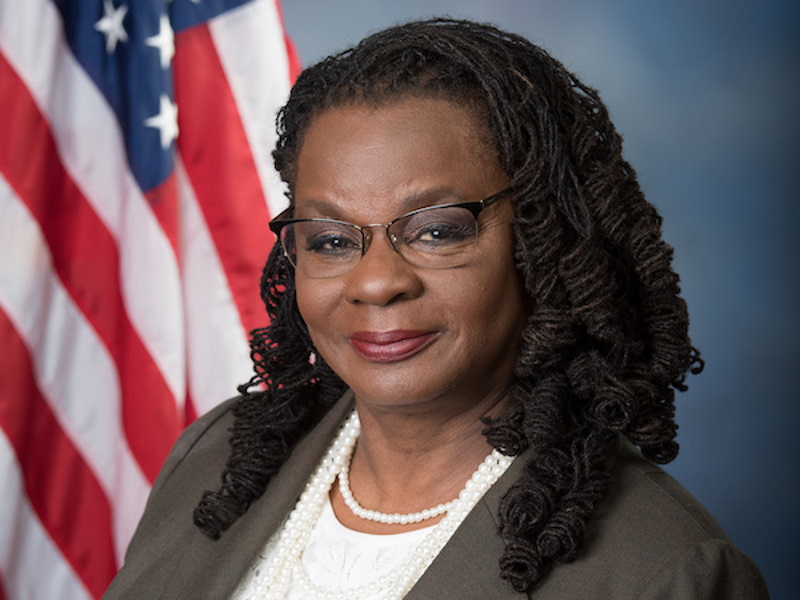Congresswoman Moore Supports Bipartisan Bill Introduced to Improve Housing Conditions in Indian Country
"I am pleased to join my colleagues in introducing this legislation that respects Tribal sovereignty and meets our trust obligation to Native Americans by providing funding for low-income housing."
WASHINGTON, D.C. – Congresswoman Gwen Moore (D-WI) joined Reps. Denny Heck (D-WA), Scott Tipton (R-CO), Deb Haaland (D-NM), Tom Cole (R-OK), Ben Ray Luján (D-NM), Don Young (R-AK) and Tulsi Gabbard (D-HI), in introducing a bipartisan bill to reauthorize the Native American Housing Assistance and Self-Determination Act (NAHASDA) through 2024. NAHASDA provides federal funding and assistance to tribes to ensure that their members can access safe, affordable housing.
“I am pleased to join my colleagues in introducing this legislation that respects Tribal sovereignty and meets our trust obligation to Native Americans by providing funding for low-income housing,” said Moore. “Native people experience some of the highest levels of poverty and, too often, this means that they experience some of the most severe shortages of quality housing. NAHASDA is a proven poverty alleviating program that uplifts Native tribes. I look forward to working with my bipartisan allies in Congress to pass this legislation.”
“NAHASDA plays an important role in providing Native American tribes with affordable housing options,” said Tipton. “With the block grants and loan opportunities available to them in this reauthorization, tribal communities can continue to make strides to create good and affordable housing a reality on their own terms.”
“Housing is a necessity for families to grow and thrive, but the federal government continues to fail to uphold the trust responsibility to Native Nations creating severe housing shortages in Indian Country, which was even further exacerbated when the Native Housing Assistance and Self-Determination Act expired. The Native House Assistance and Self Determination Act is a critical measure to ensure Tribes can exercise self-governance. We’re working to improve housing assistance programs for Tribes, so folks can raise their families in safe and affordable homes,” said Haaland.
“Providing housing for Native Americans is a trust obligation of the United States Government,” said Cole. “For those living in Indian Country, particularly on reservations and without adequate housing, the federal government has a responsibility to undertake this issue. As an original cosponsor of the Native American Housing Assistance and Self-Determination Reauthorization Act, I am proud to be one of many introducing this bipartisan legislation to reauthorize funding for tribal housing across the country.”
“NAHASDA is a fundamental component of upholding the federal trust responsibility to our nation’s Indigenous Peoples and Alaska Natives. The housing programs it supports have a proven track record of success, although tremendous needs still exist in Native communities across the country,” said Young. “This introduction reflects years of work with tribes and Native organizations to develop and advance the best approach for reauthorizing NAHASDA and combating some of the tragically inadequate housing conditions in the nation. The policy improvements within this legislation are long overdue, and I am grateful to Congressman Denny Heck and my fellow cosponsors for their leadership on this critical issue. I look forward to working with my friends on both sides of the aisle to once again move this legislation towards final passage.”
“I’m excited to see Congress reintroduce a new NAHASDA reauthorization bill,” said Gary Cooper, Chairman of the NAIHC Board of Directors and Executive Director of the Housing Authority of the Cherokee Nation. “The NAHASDA programs hasn’t been updated since 2008, and tribes deserve the needed certainty that reauthorization would provide. While the bill would authorize and update NAHASDA, I applaud Congressman Heck and all the cosponsors on including language in the bill that would make a number of other federal housing programs work better for Indian Country. While the bill may not include everything on tribes’ wishlists for housing, it is a strong start, and I look forward to working with Congressman Heck, the Financial Services Committee and all of Congress to get this bill passed.”
The Native American Housing Assistance and Self-Determination Reauthorization Act of 2019 would reauthorize NAHASDA programs, including the Native American Housing Block Grant, the Native Hawaiian Housing Block Grant, and loan guarantee programs.
The bill also includes provisions to update NAHASDA and improve the federal response to the housing crisis in Indian Country more generally. The bill authorizes critical programs like the tribal HUD-VASH program and the Native American Housing Block Grant Competitive Grant Program.
In 1996, Congress passed the Native American Housing Assistance and Self-Determination Act (NAHASDA) to respond to the housing crisis in Indian Country. NAHASDA authorizes the Native American Housing Block Grant (NAHBG) and the Native Hawaiian Housing Block Grant (NHHBG), which tribes and tribally-designated housing authorities can use to fund a range of affordable housing activities to benefit low-income tribal households. NAHASDA also authorizes loan guarantee programs to encourage mortgage lending on tribal lands and to help tribes obtain private financing for housing activities.
In 2015, HUD estimated that over 100,000 housing units have been built, acquired, or rehabilitated since the NAHBG began. The NHHBG has been used to build, acquire, or rehabilitate nearly 600 homes since the program began, and to provide services or training to another 1,500 households.
The authorization for most NAHASDA programs expired at the end of Fiscal Year 2013. The Native Hawaiian Housing Block Grant program has not been reauthorized since its initial authorization expired at the end of Fiscal Year 2005.
NOTE: This press release was submitted to Urban Milwaukee and was not written by an Urban Milwaukee writer. While it is believed to be reliable, Urban Milwaukee does not guarantee its accuracy or completeness.






















